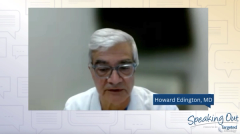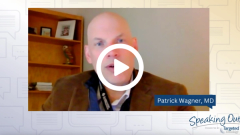
Unveiling the Potential and Challenges of Oncolytic Viruses

Targeted Oncology spoke with Howard D. Edington, MD, about how experts are addressing the potential of resistance challenges with oncolytic viruses as part of its Speaking Out video series.
Episodes in this series

While oncolytic viruses represent a novel and exciting approach to cancer treatment, there is a key challenge: resistance.
According to Howard D. Edington, MD, resistance is a major obstacle seen in the treatment of cancer. When therapies based on oncolytic viruses face the challenges of resistance, this raises concerns about their long-term efficacy.
“That is the big problem for cancer therapy in general. I think people are saying okay, can we combine treatments? We have talked a little bit about combining oncolytic virus with systemic therapy, which intellectually is very appealing simply because it functions in a similar fashion but in a different way, enough to make the combination sensible,” said Edington, director of the Melanoma and Skin Cancer Center at Allegheny Health Network, in an interview with Targeted OncologyTM.
As noted by Edington, one promising approach involves combining oncolytic viruses with other treatment modalities, such as adoptive cell therapy (ACT) using tumor-specific tumor-infiltrating lymphocytes. The rationale lies in the complementary mechanisms of action. While oncolytic viruses directly target and destroy cancer cells, ACT harnesses the body's immune system to fight the tumor.
Edington discusses the potential of using chimeric antigen receptor (CAR) T-cell therapy before administering oncolytic viruses. With such a synergistic effect, the combination can potentially overcome resistance mechanisms employed by tumors. Notably, oncolytic viruses have been recognized for their potential to enhance ACT.
Additionally, Edington notes that researchers are now investigating different viruses, different hosts, different genetic modifications, and more, and taking an interest in personalized treatments.
“Even though the tumor may be the same…they are still a different group in terms of patient response and tumor response. What we have learned is that not everything works well for everyone. There may be people that respond specifically to a tumor type, or to a treatment type,” added Edington.











































